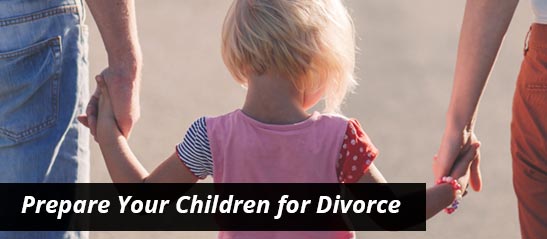6 steps that prepare children for divorce
Many boys and girls experience separation from their parents as emotionally very painful , even traumatic in extreme cases.
However, no one is predestined to suffer greatly for months because of this; how we adapt to the situation greatly influences how they will live this stage.
Why preparing children for the separation process is important

The separation mainly affects the couple that ceases to exist as such, but that does not mean that its psychological impact is reduced to those two people. When young children are involved, it is also important that this separation process is as "healthy" as possible , because their parenting context will change significantly, and so will the way they relate to their parents.
This also has to do with the stage of psychological development in which they are. During childhood and adolescence, it is easy for radical changes to generate a lot of anxiety and stress, and their coping skills are not as functional as those of the average adult. On the other hand, the family environment is the place where the majority of minors feel safest, and separation is usually interpreted as a violation of that space in which one can relax and have their space.
For this reason, although the fear of making a son or daughter suffer should not determine the decision of whether or not to separate (nor produce feelings of guilt in case of opting for the former), it is important to take steps so that their transition to new situation occurs in the best possible way .
What to do? 6 tips to keep in mind
Keep these key ideas in mind as you help your son or daughter adjust to the separation situation.
1. Do not hide what happens
Hiding what happened is totally counterproductive; separation is an important aspect that affects you as well, and you need to be able to understand it (based on your abilities dictated by your age). Describe what happened without turning it into a plea for your point of view.
2. Listen to him and encourage him to express how he feels
It's not all about telling you what happened; your feelings about it are also valuable, and should be recognized, as separation affects you too. Invite him to express himself, to say what he thinks and how he feels , and listen without wanting to correct in the moment.
3. Make sure they have not misunderstood
It is possible that you have many doubts or that you have misinterpreted various things about what is happening; After all, a separation involves many changes in your life , and the uncertainty of not knowing how what is happening will play out into the future can lead you to create catastrophic predictions.
4. Respect their space
Faced with emotional distress, it is normal for your son or daughter to want to be alone for longer than usual . Do not see this as something abnormal and do not insist to try to continue leading a normal life during those first days. If you see that the situation begins to become chronic after lasting more than a week or two, talk about it to see how it feels and, if necessary, seek professional psychotherapeutic help.
5. Don't feed your search for the culprits
Especially during adolescence, minors are prone to project their frustrations on specific people, either themselves or someone close to them. And in the context of a separation, it is even easier for this to occur, because less time is spent with one or both parents, and there are also frequent tensions or hostilities between adults.
However, when talking about what happened with your son or daughter, you should not give in to that inertia of blaming the other person for what has happened . Not because if you feel it that way your point of view is not valid, but because if you do not describe the situation in the most objective way possible, you will be putting the child in a situation where they may feel pressure to position themselves in a conflict, adopting a "partisan" mentality that feeds hostility and is self-perpetuating. Even if you are not of legal age, you have the right to interpret the facts based on the least biased information possible, since that separation will also be a fundamental part of your life trajectory.
6. To play it safe, see a psychologist
In the psychological assistance sessions, it is possible to have personalized advice from professionals with experience treating behavioral problems and emotional management ; This is useful both for oneself and to give support to the little ones who feel lost in the process of separation. In this way, you can go beyond the general advice and have guidelines adapted to your particular case.
Mentalizing solutions to problems
When we reason about a problem, we tend to use a simple and useful outline most of the time. This way of thinking is what is known as linear thinking.
Coercive persuasion is a cognitive mechanism that operates through false beliefs and misconceptions. It leads a victim to think that it is desirable and convenient to perpetuate the bond that he maintains with his aggressor.
Emotional dependency in relationships
In couple relationships there is always a certain degree of commitment and, of course, seeking the company of the person you love. However, some people have an excessive emotional dependence on their partners .



